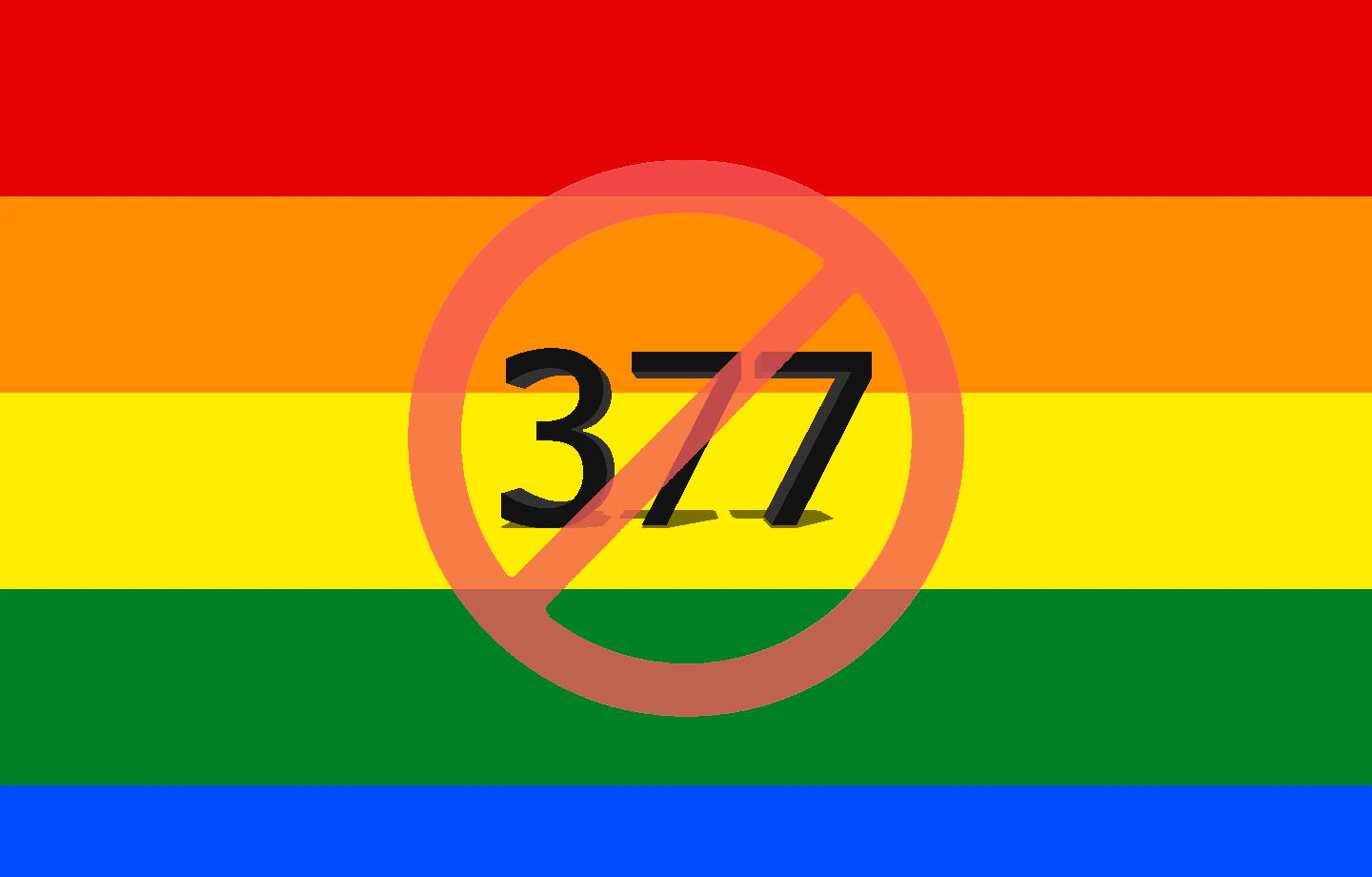
- This event has passed.
Code 377: Against the Order of Nature
Sunday, July 18 @ 10:30 am - 11:30 am


Swapnesh Dubey is a gay activist, content curator, performer and television show host living in Mumbai. He was one of the youngest news anchors in India for three years. When he was asked to read a new story with an heavy anti-gay bias he refused, and walked away from his job. Swapnesh will be talking with us on July 18 about India’s relationship with Section 377 of the Indian Penal Code, which classified homosexuality as ‘against the order of nature’ and therefore illegal. Swapnesh, who delivered an illuminating and engaging talk on Diwali in November of 2020, will bring his sharp observational skills, wit and charm to East Shore on July 18 (via Zoom) to talk about what it is like in India being an LGBTQ person today.
how to attend
• To virtually attend, please Zoom in using room number 989 3107 9078, passcode: chalice.
• To phone into the service, call 669-900-6833, Meeting ID: 989 3107 9078.
For those joining, please mute as soon as you enter the room, so everyone can hear. Please note, the services will be recorded, but at this time, there are no plans to share the recording.
More Information
If you don’t have a chalice, but want to light one, check out our Making a Chalice at Home page.
Service is followed by Coffee Hour.
Children’s Story
Sermon Video
We apologize this video cuts off. To see a full reading of the story, you can do so here.
Sermon Audio
Code 377: Against the Order of Nature
Sermon Text
Code 377 of the Indian Penal Code
“Unnatural offences: Whoever voluntarily has carnal intercourse against the order of nature with any man, woman or animal, shall be punished with imprisonment for life, or with imprisonment of either description for a term which may extend to ten years, and shall also be liable to fine. Explanation: Penetration is sufficient to constitute the carnal intercourse necessary to the offence described in this section.”
Hello everyone, my name is Swapnesh and I am so happy to be able to talk to you about a subject close to my heart. I hope you all are doing well and being safe.
Today I want to talk to you about how British colonial law sec 377 forced the Indian LGBTQI+ community to be hidden, suppressed and to feel worthless for nearly 158 years. And I also want you all to know how the Indian Supreme Court, with its historic judgement, gave hope and freedom to millions of people in India.
Before I mention how this law came in the picture, let me mention how India’s ministry of home affairs had submitted an affidavit supporting section 377 in the Court. It said: “The law does not run separately from society. It only reflects the perception of the society… When section 377 was brought under the statute as an act of criminality, it responded to the values and mores of the time in the Indian society.” The ministry also claimed that, by comparison to the United Kingdom and the United States of America, “Objectively speaking, there is no such tolerance to the practice of homosexuality in Indian society.”
This is how Indian governments mostly reacted to the scrapping of section 377. But in fact Section 377, at its origin, did not respond to Indian society or its values or mores at all. British colonial governors imposed it on India undemocratically. It reflected only the British Judeo-Christian values of the time. The criminal Tribes Act of 1871 in India defined certain tribal communities collectively as armed robbers, thieves and undesirables. British authorities associated nomadism not only with crime but with sexual immorality. In 1897 this same act was amended and expressly included Eunuchs as a notified group. In practice this meant India’s hijras, presumed to be sexually immoral and guilty of sodomy.
The word ‘hijra’ possibly derived from the Urdu word ‘ezra,’ meaning a nomad or wanderer, form a large community of people in India who were born male, yet have lived their lives as female or a third gender. In many Indian cultures this was a defined and permitted social niche. But under British laws, any ‘eunuch’ who appeared dressed or ornamented like a woman in a public street or who danced, played music or took part in any exhibition in a public street could be arrested without warrant. The law denied hijras legal personhood, including the right to draw up a will or to adopt a child. Local authorities had to keep a register of all ‘eunuchs’ reasonably suspected of committing these offences as detailed under section 377 of the Indian Penal Code. The British considered hijra communities in India a distasteful nuisance. Colonial authorities obstructed these people their traditional rights, including rights to land and money they owned in villages across India. Anti-begging provisions in vagrancy laws, such as those in the Bombay and Bengal presidencies, also criminalized the customary social niche of hijras as mendicants. The 1897 amendment, subtitled “An act for the registration of Criminal Tribes and Eunuchs,” linked hijra identity to section 377. It showed how the vagrancy and sodomy provisions stemmed from the same motive: to place not just behaviors, but classes of people under surveillance and control. Colonial laws ultimately made the personal condition of being hijra a criminal offence, and that list went on adding anyone and everyone which British authorities thought were unnatural and ‘not good for the society.’
This is how we got this colonial law section 377. It came from British laws, and like any other laws, it became the part of Indian legal system even after Independence in 1947. By then LGBTQI+ communities were well-isolated, and people began seeing them as criminals, encouraging these individuals to hide any alternative sexualities or genders.
On the other hand, Indian culture seems to have historically celebrated many kinds of sexualities. The Kama Sutra – the book which we proudly share with the world – tells us how to celebrate sex, and embraces an understanding of different sexualities. Indian temples and sculptures are full of signs that alternative sexualities have historically been accepted. Even if we see Indian gods seem to represent perfect examples of sexual fluidity.
But all of that aside, we Indians are still stuck with British colonial laws. How strange.
Now let’s jump to how the Indian Supreme Court in its historic judgement tried to change so many things for the LGBTQI+ community in India.
It all started in July 2009 when the Delhi high Court first struck down portions of section 377 as unconstitutional with respect to gay sex. It was a big day for the LGBTQI+ community in India. But this judgment was challenged in the Supreme Court, and unfortunately was overturned by the Supreme Court on 11th December 2013. The Court held that amending or repealing section 377 should be a matter left to Parliament, not the judiciary.
Well, we all knew Parliament would never even touch section 377 since, for Indian governments, the LGBTQI+ community was never really a priority.
Indian LGBTQI+ activists and petitioners kept working towards getting time in the Supreme Court to revisit the judgement. The Supreme Court decided that it would review the judgement by a 5-member constitutional bench. In the process something very interesting happened. On 24th August, 2017, the Supreme Court upheld the right to privacy as a fundamental right under the constitution. In the same judgement, the Court also called for equality and condemned discrimination, stating that the protection of sexual orientation lies at the very core of one’s fundamental rights. This judgement paved the path for the LGBTQI+ community. I was very sure after this judgement that this would be the time when the Supreme Court would actually strike down section 377. And that’s what happened.
On 6th September, 2018 the Supreme Court of India ruled that the application of code 377 to consensual homosexual sex between adults was unconstitutional, irrational, indefensible and manifestly arbitrary.
The happiness, the tears, the hope when this news broke on TV channels made the future look bright. But, as usual, the government was silent on this decision. In fact, some of the ministers of the Indian government continued to claim it went against Indian culture even after the historic judgement was announced.
The 495-page ground-breaking verdict, delivered by a five-judge constitutional bench headed by then-chief justice Dipak Misra was not easily understood. It needed the help of philosophers and poets to break down parts of this 158-year-old colonial law, which criminalized consensual gay sex under Section 377 of the Indian Penal Code.
Since that judgement so many things have changed. Police can’t take advantage of LGBTQI+ people as easily any more. The law stands with the LGBTQI+ community, and that gives strength to lot of people to stand against bigotry and to fight back. Sexual harassment can’t simply be legally swept under the rug now.
Society will still need many more years to change but things are changing bit by bit. Many more LGBTQI+ people are coming out of closet, now that they know the law is on their side. The feeling of being freed from a draconian law like section 377 is so wonderful – we all can feel that around us. People from all parts of life are coming out and talking about sexuality and beginning to explore who they truly may be.
Many corporate houses – even if it is only to show off – are coming on board by hiring LGBTQI+ people.
Filmmakers are putting LGBTQI+ characters into their films and television series (although I must say that a lot of stereotypes and lack of sensitivity is still being shown towards these characters.) Young men and women are talking about LGBTQI+ rights and becoming allies to help the cause. Talk of marriage equality is already happening in Indian courts, though many of these petitions are rejected out of hand because the government is totally against it and courts are simply not ready to take further steps yet. But in the future India will have marriage equality, because the courts in India have always stood by the people more than Parliamentarians will ever do.
“I am what I am so take me as I am.” This is how the Supreme Court judgement on scrapping section 377 began. By using a lot of poetic references and philosophical statements, it has gotten to the point where one of the 5 judges actually said, “We as a nation should apologize to the LGBTQI+ community, as we are responsible for the suffering they went through all these years.”
The ruling was not just a judgement. It was an emotional affair. So many people watching the TV, listening the news, trapped in heterosexual marriages that day called to say they wished they could start their lives again with this judgement. Many LGBTQI+ people who were about to get married by force or by giving in to familial pressure have decided not to do so now they know the law is now with them.
The judiciary plays a crucial role in changing how society behaves. After this judgement a change in society is quite visible. Obviously it needs to go further out from just a few metropolitan cities, because real India still resides in villages. Conversation and awareness is still a long path to cross. But the judgement marked a watershed moment in national conversations around queer rights, mostly because judges themselves recognized that the historical wrongs done to the queer community needs to be atoned for at a policy level.
Saying goodbye to section 377 was a court moment and has changed the lives of the LGBTQI+ community in an enormous way. It helps, it supports, it leads and it gives optimism for a better and better future.
Now it feels like the British establishment has actually left, and India is coming back to the same path where she used to celebrate alternative sexualities with welcoming hands. I wish to see that India in the near future.
On that note, I wish you all much happiness and health. Be well, accept people for who they are, and always smile. Thank you.
Click here for a timeline of India’s struggle for equal rights for LGBTQI+ people.
More Videos


